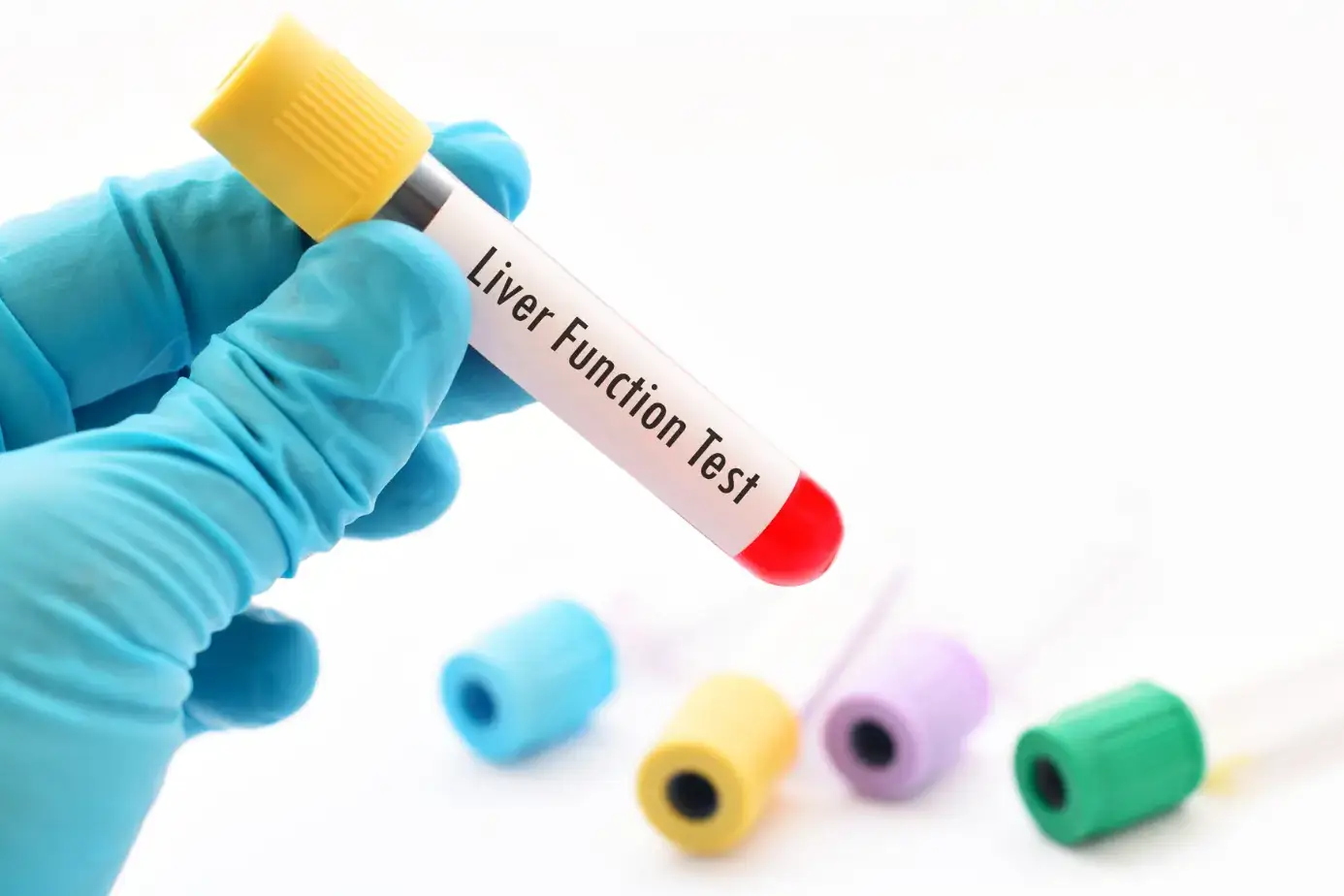Stomach flu is also called viral gastroenteritis. It’s a common viral infection that affects the GI tract. This includes the stomach and intestines. Viruses such as norovirus, rotavirus, and adenovirus lead to these symptoms.
Table of Contents
ToggleHow long stomach flu symptoms last depends on factors like one’s age and the virus type. Usually, they go away in 1-2 days. But, for some people, it might take up to 10 days to feel better. Drinking plenty of fluids, getting rest, and eating simple foods are key to getting better.
Seeing a doctor is a good idea if the symptoms get very severe or if you can’t keep fluids down. This is particularly important for infants, young children, and the elderly.
Understanding Stomach Flu
Stomach flu, or viral gastroenteritis, is an infection of the GI tract. It leads to inflammation and irritation. It’s different from the flu that spreads every winter. You might have stomach flu if you feel sick, throw up, have diarrhea, or a fever. This illness is mainly caused by viruses like norovirus, rotavirus, and adenovirus.
What is Stomach Flu?
Viral gastroenteritis, known as stomach flu, affects your gut. It makes your GI tract swell and hurt. This sickness is often because of different viruses, including norovirus, rotavirus, and adenovirus.
Symptoms of Stomach Flu
Stomach flu shows up as feeling queasy, vomiting, and having a runny stomach. Your belly might ache, and sometimes you could have a bit of a fever. It’s all because your gut is dealing with these viruses. How bad you feel and how long it lasts depend on the virus and your health.
Common Causes of Stomach Flu
Norovirus, rotavirus, and adenovirus are the main causes of stomach flu or viral gastroenteritis. Norovirus leads to most cases in adults, with 19-21 million instances yearly in the U.S. Rotavirus is the top cause for infants and young kids. Adenovirus affects young kids under 2. These viruses spread easily, touching contaminated items or being close to infected people.
Norovirus
Norovirus is very contagious. Its contagious period can begin before symptoms show and last a few days after getting better. Symptoms start showing in 1 to 2 days after exposure. People can still spread the virus up to two weeks after they’ve recovered. Infected children should stay home from school until two days after their last episode of vomiting or diarrhea.
Rotavirus
Rotavirus is more common in infants and young kids. Symptoms come about 1 to 3 days after they’re exposed and can last 3 to 8 days. They can spread the virus even before showing symptoms and up to two weeks after they recover. Giving infants a vaccine can help stop the virus from spreading.
Adenovirus
Adenovirus is known more for causing respiratory infections. It can also cause stomach infections in any age group. It mainly affects children under 3 and often spreads at daycare centers.

Duration of Stomach Flu Symptoms
The time stomach flu symptoms last depend on the virus. Norovirus, a top cause, brings symptoms for 1-2 days. Even after feeling better, it may stay in your stool for up to 2 weeks. This can make you contagious longer than you think.
Rotavirus Duration
Rotavirus, another common cause, can make you feel bad for 3-8 days. What’s worse, you might spread it before feeling ill. And, you could still be contagious for two more weeks after getting better.
Adenovirus Duration
Stomach flu from adenovirus usually gets better in 5-7 days. Adenovirus mainly causes coughs and colds, but it can also upset your stomach.
Though the sickness might not last long, the time you’re contagious is longer. Make sure to wash your hands well and clean surfaces. This can stop the stomach flu from spreading.
How Long Does Stomach Flu Last in Children?
The stomach flu duration in children changes with age and the virus type. Viruses like rotavirus and adenovirus can make infants and young kids sick for about 3-8 days.
Infants and toddlers often have worse stomach flu symptoms. This can lead to dehydration because they lose fluids quickly from vomiting and diarrhea. Parents need to watch their kids closely. If a child can’t drink or seems dehydrated, they should see a doctor. Signs of dehydration include less peeing, a dry mouth, fever, fussiness, or tiredness.

The stomach flu duration in children is usually longer than in adults. But, in most cases, the illness goes away on its own in a week to ten days. Children should drink plenty, eat lightly, and rest. These are the best ways to help them get better.
How Long Does Stomach Flu Last in Adults?
The stomach flu usually goes away in 1-2 days for healthy adults. Yet, it could last up to 10 days in some cases. People with a weak immune system or health issues might suffer longer or face more risks. To recover well, it’s key to drink enough, rest a lot, and eat simple foods.
Norovirus is behind about half of adult stomach flu cases worldwide. It survives both heat and common cleaning methods. Another virus, adenovirus, can also trigger stomach problems. It’s most known for causing lung issues but can lead to an upset stomach when food or water gets contaminated.
The time someone has the stomach flu can differ, based on health. Most people feel better in a day or two. But if someone’s immune system is weak, symptoms might last up to 14 days. Feeling very sick? Can’t keep liquids down or have intense stomach pain? It’s wise to see a doctor soon.
Dehydration is a big risk, especially for those not feeling well or with health problems. Signs include feeling very thirsty, not peeing enough, being weak, and getting headache. Everyone should keep an eye on how much they drink. Got any dehydration clues? Get medical help right away.
How Long are You Contagious with Stomach Flu?
Stomach flu is caused by viruses like norovirus and rotavirus. It can make you sick for a few days. You might even spread it to others before you notice you’re sick.
Norovirus Contagiousness
Norovirus is very easy to spread and can stay contagious for up to 2 weeks after you feel better. To avoid passing it on, wash your hands well and don’t get too close to others while you’re getting over it. Being careful can help everyone stay healthy.
Rotavirus Contagiousness
Rotavirus largely affects kids and infants. If they get it, they could be contagious for about two weeks after they get better. Remember, this virus can start showing symptoms 1 to 3 days after being exposed, and they can last for up to 8 days.
Adenovirus Contagiousness
The adenovirus can also keep you contagious for up to 2 weeks. During this time, clean well and try not to breathe in the same air as someone who’s sick. These efforts help stop the stomach flu from spreading.

How Long Does Stomach Flu Last for Different Age Groups?
The stomach flu can last for differing times, depending on age. Infants and babies can be hit hard, facing severe symptoms for up to 8 days. Meanwhile, toddlers and young children might battle symptoms for 3-8 days.
Infants and Babies
Young infants and babies are more likely to struggle a bit longer with stomach flu. Their still-developing immune systems can take from 3 to 8 days to fight it off. It’s vital to watch for dehydration and get them to a doctor if things worsen.
Toddlers and Young Children
Similarly, toddlers and young ones can endure symptoms for 3-8 days. A common culprit is the rotavirus, infecting most by age 3. Making sure they stay hydrated and stick to a bland diet aids in their recovery.
Adults
Healthy adults tend to beat the stomach flu in 1-2 days. Norovirus is often to blame for these quick but unpleasant bouts. Yet, those with health issues might feel sick for up to 10 days.
Elderly
Older adults, especially if they’re not in top health, can take up to 10 days to recover. Their weaker immune systems are generally the reason. Keeping an eye out for dehydration and prompt medical help are critical for them.
For every age group, staying hydrated, resting, and eating mildly is key during recovery. Severe symptoms or signs of dehydration call for a doctor’s visit. This approach is the best to prevent complications and ensure everyone gets the treatment they need.
Preventing the Spread of Stomach Flu
To keep the stomach flu from spreading, focus on good hygiene and steps to stay safe. Washing your hands well with soap and water is the top way to avoid sharing these viruses. Alcohol hand gels aren’t as good at fighting off some of these bugs. Also, make sure to clean areas like bathrooms and kitchens with cleaning products that have bleach. This helps because the viruses can live on surfaces for a while.
Handwashing
Good hand hygiene is key to stopping stomach flu. Always wash your hands well with soap and water, especially after the bathroom. Do it before you eat and after caring for someone who’s ill.
Disinfecting Surfaces
It’s vital to clean and sanitize places where the stomach flu might be, like your bathroom and kitchen. Use strong cleaners that contain bleach. Or pick disinfectants that have been approved by the EPA. This helps kill the viruses that cause this sickness.
Avoiding Close Contact
Avoiding close contact with people who have the stomach flu is smart. If you feel sick, stay home. Don’t share personal things or food with sick people. And try to keep some distance from others. These steps can help lower the chances of stomach flu in your area.

Home Remedies for Stomach Flu
Stomach flu goes away by itself in a few days. But, you can use home remedies to feel better and recover faster. It’s very important to keep yourself hydrated. This is because you can lose a lot of fluids from vomiting and diarrhea.
Staying Hydrated
To keep hydrated, drink water, clear broths, or oral rehydration solutions like Pedialyte. It’s better to take small sips often. This way, you increase your chances of keeping the fluids in.
Oral Rehydration Solutions
For some extra help, try drinks like Pedialyte. They put back the electrolytes lost through vomiting and diarrhea. This is especially important for kids, who can get dehydrated quickly.
BRAT Diet
People who are a little older can try the BRAT diet. This diet includes bananas, rice, applesauce, and toast. It can make your stomach feel better. Make sure to rest a lot and avoid foods that make your stomach upset.
When to Seek Medical Attention
Stomach flu usually goes away on its own in a few days. But, if you’re a baby, a kid, or older, you might get dehydrated. This is a big problem with the flu.
Signs of Dehydration
Dark urine, less pee, and sunken eyes are signs of dehydration. If you see these in you or your child, a doctor should check it out.
Severe or Persistent Symptoms
Seeing a doctor is also a good idea with very bad or strong symptoms. This includes a lot of throwing up, a high fever, or blood in your vomit or stool. It could be something more serious, and a doctor will help.
Blood in Vomit or Stool
If you spot blood in throw up or in the bathroom, don’t wait. Go to the doctor right away. It could be something that needs quick treatment.
If you’re healthy, stomach flu isn’t usually a big deal. But, keep an eye out for dehydration and those strong symptoms. If worried, talk to a doctor. This is especially true for babies, kids, and the elderly.

How Long Does Stomach Flu Last? Typical Duration and Recovery
The stomach flu, or viral gastroenteritis, usually lasts 1-2 days for norovirus. Rotavirus can cause symptoms for 3-8 days. Adenovirus, another common cause, might stick around for 5-7 days. Remember, the time it lasts differs between people. Those who are very young, old, or have health problems may get sick longer.
To recover from the stomach flu, drink lots of fluids, take it easy, and eat simple foods. If your symptoms are bad or you’re very thirsty, see a doctor. These steps can reduce how long you’re sick and help you feel well again.
Preventing Future Stomach Flu
To keep stomach flu away, it’s vital to be proactive. For babies and young kids, the rotavirus vaccine is very important. It shields them from the main reason for stomach flu in their group.
Along with the vaccine, good hygiene makes a big difference. This includes washing your hands well, cleaning dirty areas, and staying away from sick people. These steps can help stop stomach flu bugs like norovirus, rotavirus, and adenovirus from spreading.
Following these actions not only cuts down stomach flu cases but also stops it from going around in your family or community. So, taking measures to prevent future stomach flu is key for a healthy life.

Distinguishing Stomach Flu from Other Illnesses
Knowing how stomach flu, or viral gastroenteritis, is different from food poisoning and seasonal flu is key. Each has its own symptoms. Being able to tell them apart can lead you to the right treatment and stop the illness from spreading further.
Food Poisoning vs. Stomach Flu
Food poisoning comes from eating or drinking something bad. It makes you feel sick with nausea, vomiting, and diarrhea, just like the stomach flu. But unlike stomach flu, food poisoning is usually over in 1-2 days. The CDC says about 48 million people in the US get food poisoning each year. Bacteria like Salmonella and E. coli are often to blame.
Seasonal Flu vs. Stomach Flu
The seasonal flu, caused by the flu virus, hits your lungs and causes fever, aches, and a cough. The stomach flu, on the other hand, is caused by different viruses. These include norovirus and others. Symptoms usually appear 24 to 72 hours after catching the virus.
Fully understanding food poisoning, seasonal flu, and stomach flu can guide you to the right response. You can learn how to spot their unique signs and recovery times. This knowledge helps in managing your health and protecting others.
Conclusion
The stomach flu can last from a few days to a week. Its length depends on the type of virus and your health. The main viruses are norovirus, rotavirus, and adenovirus. For most people, symptoms end within a week. But, for some, it can lead to dehydration. This is especially true for the very young, the elderly, and those with weaker immune systems.
To get better, drink lots of fluids, rest, and eat simple foods. If your symptoms are bad or you feel dehydrated, see a doctor. Washing your hands well and keeping things clean can stop the virus from spreading. Also, a vaccine is available to protect little kids from rotavirus.
Knowing how long it lasts and what to do helps you get over the stomach flu faster. If you’re worried or feel very sick, talk to a doctor. They can give you advice just for you.
FAQ
What is Stomach Flu?
Stomach flu, or viral gastroenteritis, is an infection. It targets the GI tract, causing it to swell and irritate. Unlike the flu, it’s not connected to the seasonal flu virus.
What are the Symptoms of Stomach Flu?
The signs of stomach flu are easy to spot. They include feeling sick, throwing up, running to the bathroom a lot, and a sore tummy. A light fever might also happen.
What Causes Stomach Flu?
Various viruses, like norovirus and rotavirus, bring on stomach flu. They infect the GI tract, leading to the sickness.
How Long Does Norovirus Stomach Flu Last?
Norovirus symptoms are quick but can linger in your system. Typically, they last 1 to 2 days. But you can still spread it for up to 2 weeks after getting better.
How Long Does Rotavirus Stomach Flu Last?
Rotavirus keeps symptoms around for a bit longer. They tend to last from 3 to 8 days.
How Long Does Adenovirus Stomach Flu Last?
If adenovirus is the cause, your stomach flu might last a week. Usually, it clears up in 5 to 7 days.
How Long Does Stomach Flu Last in Children?
In kids, stomach flu from viruses like rotavirus and adenovirus usually stays for 3 to 8 days.
How Long Does Stomach Flu Last in Adults?
Adults often shake off the stomach flu quickly. Viruses like norovirus are usually gone in 1 to 2 days. But it can drag on for 10 days for some.
How Long are You Contagious with Stomach Flu?
The worst part is, you can spread stomach flu before and after you feel sick. Some, hit by norovirus, could keep it going for up to 2 weeks after feeling better.
How Can I Prevent the Spread of Stomach Flu?
Wash your hands well, disinfect surfaces, and stay away from those who are sick. These steps are key to stop stomach flu from spreading.
What Home Remedies Can Help with Stomach Flu?
Stay hydrated, drink clear fluids, and eat simple foods. This BRAT diet can make you feel better and speed up your recovery.
When Should I Seek Medical Attention for Stomach Flu?
If you’re extremely sick or your symptoms won’t quit, see a doctor. Severe vomiting, a high fever, or blood in your vomit or stool could signal something worse.
How Can I Prevent Future Episodes of Stomach Flu?
For kids, getting the rotavirus vaccine is a good start. Also, practice good hygiene to lower the chances of getting stomach flu again.
How Does Stomach Flu Differ from Other Illnesses?
Stomach flu stands apart from food poisoning and the regular flu. It has its own set of signs and causes.
About The Author

Medically reviewed by Dr. Nivedita Pandey, MD, DM (Gastroenterology)
Senior Gastroenterologist & Hepatologist
Dr. Nivedita Pandey is a U.S.-trained gastroenterologist and hepatologist with extensive experience in diagnosing and treating liver diseases and gastrointestinal disorders. She specializes in liver enzyme abnormalities, fatty liver disease, hepatitis, cirrhosis, and digestive health.
All content is reviewed for medical accuracy and aligned with current clinical guidelines.
About Author | Instagram | Linkedin





